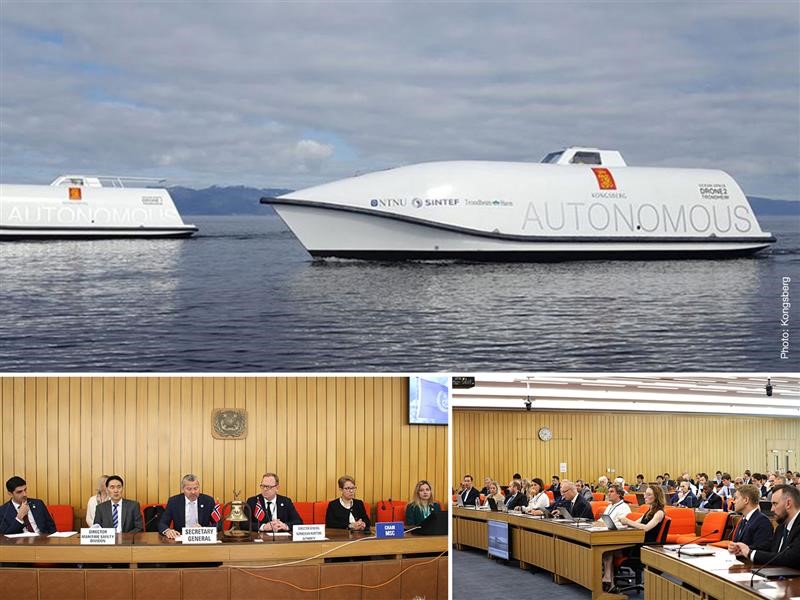
Symposium explores autonomous technological solutions for maritime vessels
LONDON : The latest developments in autonomous shipping were explored at a symposium co-hosted by IMO and the Government of Norway entitled “Maritime Autonomous Surface Ships as a reality: the need for the IMO MASS Code“.
Held at IMO Headquarters on 17 June 2025, the event focused on real-life experiences from existing small- and large-scale MASS projects and the latest developments in legislation, national standards and class notations stemming from ongoing advancements in the field.
The event was intended to set the tone for the MASS discussions at the 110th session of the Maritime Safety Committee, to begin the following day.
IMO Secretary-General, Mr. Arsenio Dominguez, opened the Symposium, and noted the importance of real-world experiences in the development of the non-mandatory MASS Code, stating:
“These insights are vital as IMO works with Member States and international organizations to develop an efficient, safe, secure, environment-friendly, balanced and inclusive regulatory framework.”
The Director General of the Norwegian Maritime Authority, Alf Tore Sørheim, also acknowledged the close relationship between experience and regulatory development:
“To fully realize its potential, technology and regulation must evolve in parallel. Innovation moves fast, and our regulatory frameworks must keep pace to ensure both progress and safety.”
Regulations, innovation, solutions
The day’s programme was composed of five sessions spanning regulatory developments, active projects and forward-looking advances in autonomous shipping. Presentations from regulators, pioneers, operators and researchers highlighted that autonomous shipping is happening now, albeit on a relatively limited scale.
Throughout the sessions, two key themes emerged :
the vast potential held in the synergetic action of humans and machines/technology in improving the safety and sustainability of shipping across various dimensions of autonomy; and
the importance of the ongoing development of the non-mandatory MASS Code at IMO for the expansion of the safe and sustainable use of MASS from the regional to the international scale.
Several speakers emphasized the need for coordination and clarity as the MASS Code continues to evolve. They stressed that autonomous technologies offer clear benefits, but their success depends on rigorous testing, effective regulation, and systems designed around human capabilities.
The Chair of the Maritime Safety Committee, Ms. Mayte Medina, closed the Symposium by recognizing the many achievements along the road to the development of the non-mandatory MASS Code so far, while recalling that the matter of autonomous ships was discussed at IMO in 1964. She also emphasized the iterative relationship between real-life experience and the regulatory work ahead at MSC 110:
“What we have seen today, the concrete experience from the industry, administrations and recognized organizations provides the always necessary background, context and motivation for the work being undertaken in the development of the MASS Code… The current exercise will result in a non-mandatory instrument which primary objective is to set the framework for gaining further experience.”

